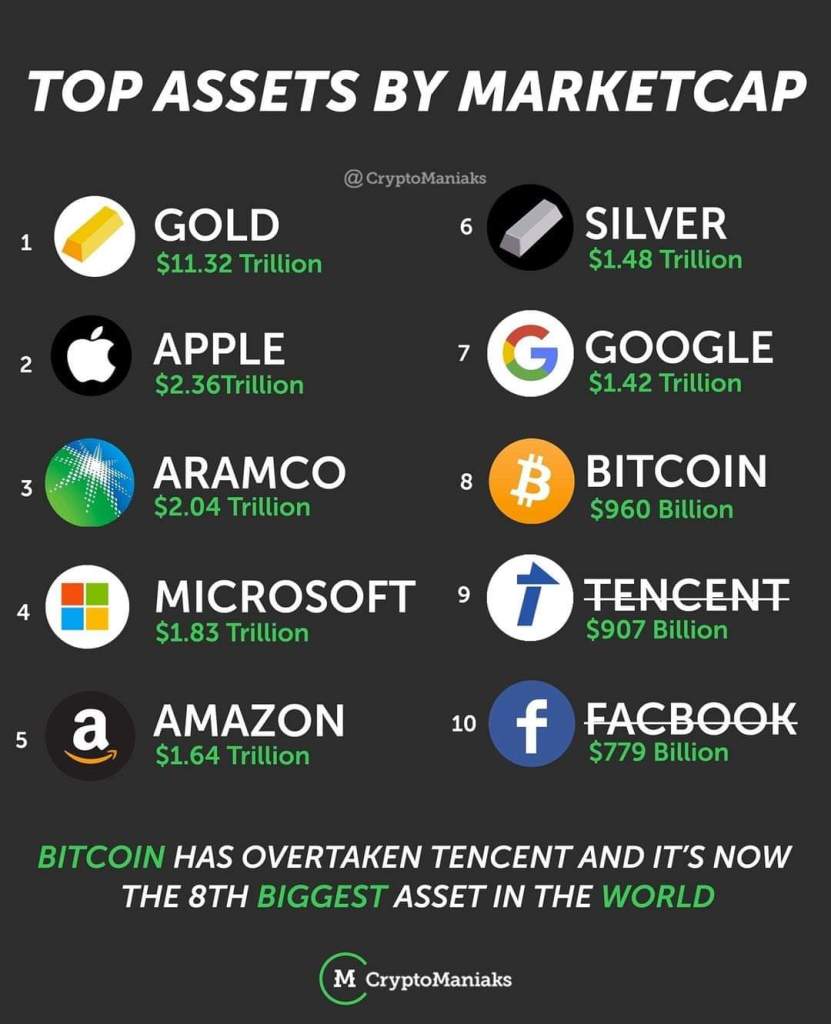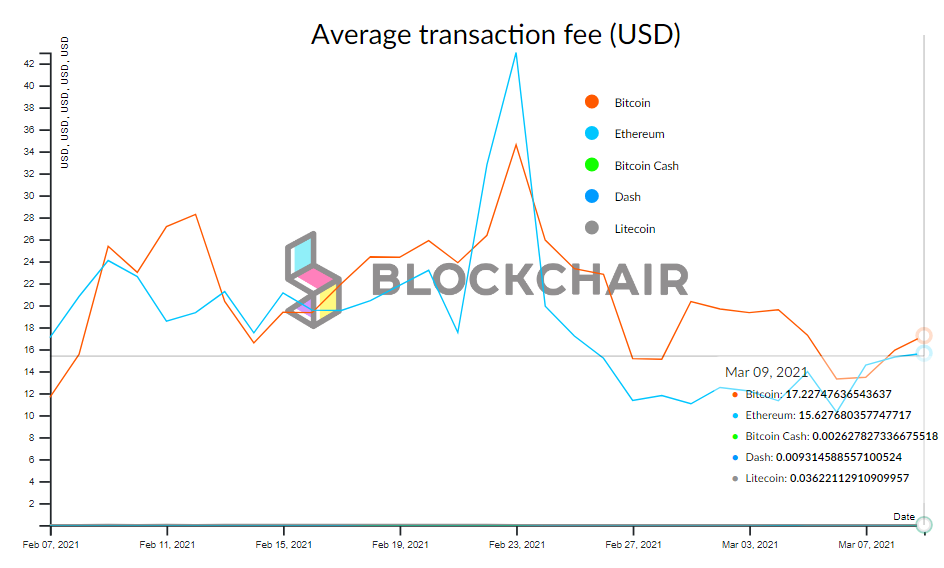Image from https://infinum.com/
Whether you’re a fan of cryptocurrency or not, you have to recognize that it’s the fastest growing asset class since 2017 began. Whereas the stock market delivered a well-above-average return in the latest years, the aggregate market cap of virtual currencies has soared from $17.7 billion at the beginning of 2017 to $1.67 Trillion as of March 3rd, according to CoinMarketCap.com. That’s an increase in value of close to 10 times, and it’s a big reason retail investors have become enamored with this burgeoning asset class. Lets take for example Bitcoin (BTC), the highest valued and most traded coin of all has combating alone in the top market caps as see from the picture.

Today, we’ll take a brief look at the types of transaction fees you may encounter if you choose to invest in cryptocurrencies, and we’ll examine which cryptocurrencies, among the largest by market cap, offer the lowest transaction fees.
In total, there are three transaction fees you could be hit with when dealing with cryptocurrencies:
Exchange fees: This first transaction fee is one we should be familiar with, as it describes the idea of paying a “commission” to complete a buy or sell order. Most cryptocurrency exchanges tend to use a fixed-fee format, but the actual cost of transaction fees can vary by platform. In essence, it’s always smart to do some homework and find out which crypto exchanges offer the lowest transaction fees.
However, another model known as maker-taker exists within crypto exchanges that can cause transaction fees to fluctuate. The maker (seller of cryptocurrency)-taker (buyer of cryptocurrency) model charges a variable fee based on your amount of trading activity. If you’re an active trader, or one who has transacted a high dollar amount over, say, a 30-day rolling period, you as the maker may qualify for a reduced transaction fee.
Network fees: Next, you may be required to pay transaction fees in order to incentivize cryptocurrency miners. Miners are nothing more than persons with high-powered computers who are charged with verifying and validating transactions to be added to a blockchain. In short, they make sure that tokens weren’t spent twice and that transactions are indeed true.
The validation of these transactions can vary by network, with miners setting their own price, and investors or crypto users choosing whether or not to accept it. Of course, the obvious should be stated: The lower transaction fee an investor or crypto user is willing to pay, the longer that transaction could take to be validated, as it’ll be a low priority for miners.
Wallet fees: Lastly, it’s possible you’ll pay fees to store your cryptocurrency in a digital wallet. The software used to develop wallets, as well as updates, isn’t free, meaning you might owe a nominal amount to store your cryptocurrency.
Which cryptocurrencies sport the lowest average transaction fees?
But the big question probably on cryptocurrency enthusiasts’ minds is this: Which virtual currencies offer the lowest transaction fees, on average? According to data found at BitInfoCharts.com and blockchair.com, this was the average transaction fee breakdown for March 9th, 2021, presented in order of descending cost:


Privacy coins such Monero and Dash are adding extra layers of anonymity to protect sender, receiver, and transaction-amount data from being traced isn’t cheap.
You’ll also note that some of the most popular networks have comparatively higher transaction costs. Examples include Bitcoin at $15.76 and Ethereum at $15.49. Miners on these networks understand how popular these virtual currencies are with businesses and consumers, so they have some degree of pricing power when setting their validation fee. If users don’t choose to accept this fee, they could be in for a long wait.
By comparison, Ripple and Bitcoin Cash have some of the lowest transaction fees around. Ripple’s niche focus on financial institutions sort of narrows the XRP token’s use as a mainstream currency. However, Ripple’s blockchain and ability to expedite on-demand liquidity for financial institutions for costs of just a fraction of a penny make it a popular choice for cryptocurrency investors. Not surprisingly, it’s currently on the top 10 largest virtual currency by market cap. Even though its lower fees some crypto wallets do not offer it as an option.
ManedIDR recommendation will be to check the average transaction cost and look also for the best exchange using your existing crypto wallets.
What crypto exchange has the lowest fees?
- Binance – Up to 0,1% in Fees. Ranks #1 out of 7 Crypto Exchanges.
- Kraken – From 0% up to 0,26% in Fees.
- Cex.io – From 0% up to 0,25% in Fees.
- Bittrex – A Fixed 0,25% Fee.
- Coinbase – From 1,49% up to 3,99% in Fees.
- Bitstamp – From 0,05% up to 5% in Fees.
- Poloniex – 0% up to 0,125% in Fees

